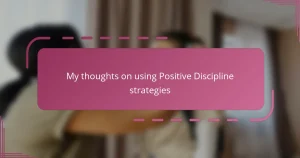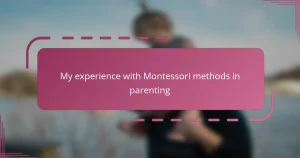Key takeaways
- RIE principles emphasize respecting infants as capable individuals, fostering autonomy and confidence through observation rather than direct intervention.
- Creating a calm home environment through gentle communication and consistent rituals helps build trust and emotional harmony between parent and child.
- Incorporating RIE requires patience and a commitment to allowing children to navigate challenges independently, leading to valuable moments of connection and growth.
- Adopting RIE principles reshapes family relationships, enhancing mutual respect and trust, ultimately creating a nurturing atmosphere for both parent and child.
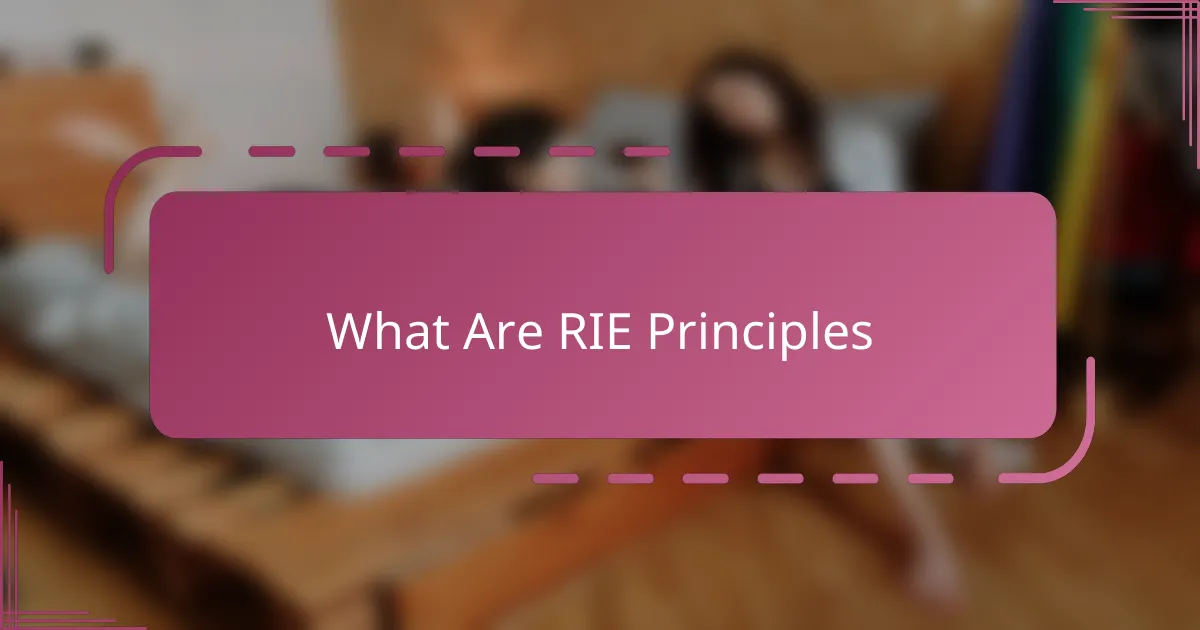
What Are RIE Principles
RIE principles focus on respecting infants as capable individuals right from the start. I found this idea both surprising and empowering—it made me rethink how I interact with my child daily. Have you ever paused to consider how much a baby understands before they can even speak?
One core aspect is observing rather than directing; it’s about trusting your child to explore and learn at their own pace. When I started doing this, I noticed how my child showed more curiosity and confidence. It felt like I was finally stepping back and really seeing who they are beneath the surface.
Another key point is offering consistent respect through gentle communication and truthful interactions. I used to worry that being overly honest might confuse or upset my little one, but embracing honesty built a deeper bond and mutual understanding. Doesn’t it make sense that respect breeds respect, even with the tiniest members of the family?
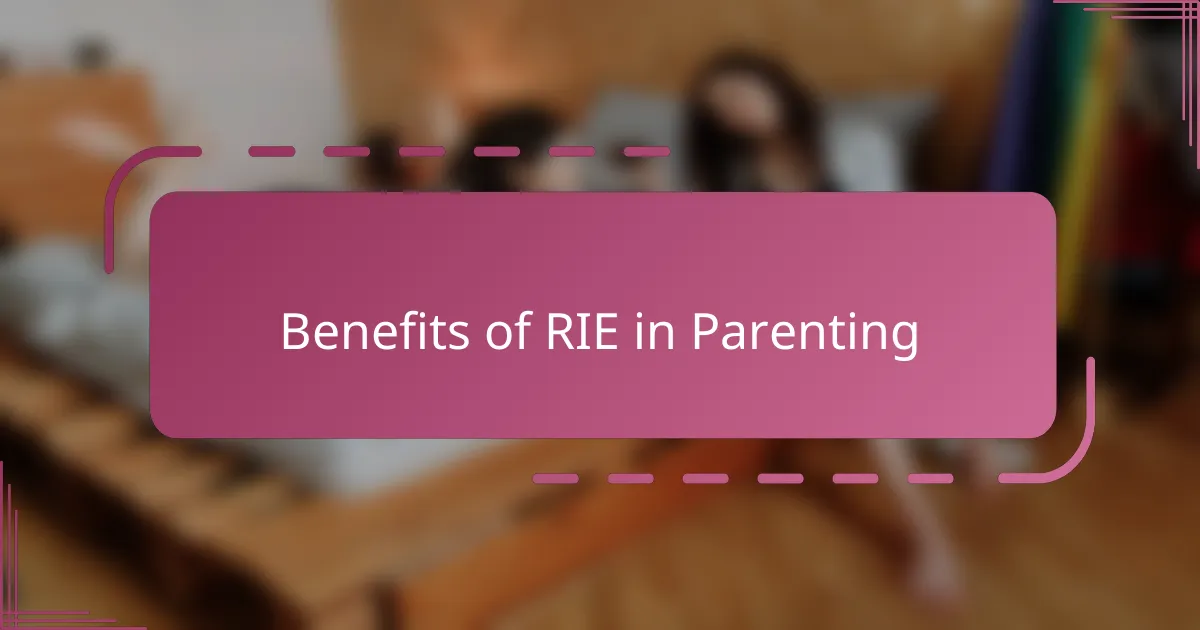
Benefits of RIE in Parenting
One of the biggest benefits I noticed with RIE was how it fostered my child’s sense of autonomy. When I let go of the urge to constantly intervene, I saw them tackle challenges with more determination and pride. Isn’t it amazing how giving a little freedom can build such confidence?
I also found that practicing respect through RIE created a calmer home atmosphere. By truly listening and responding thoughtfully, our interactions became less about control and more about connection. Have you ever experienced that peaceful feeling when your child feels genuinely understood? That’s the kind of emotional harmony I cherish.
Finally, RIE helped me appreciate the depth of my child’s inner world. Observing quietly instead of rushing to fix or distract allowed me to witness small moments of concentration and joy that might have otherwise gone unnoticed. It reminded me why slowing down is so important—not just for them, but for me too.
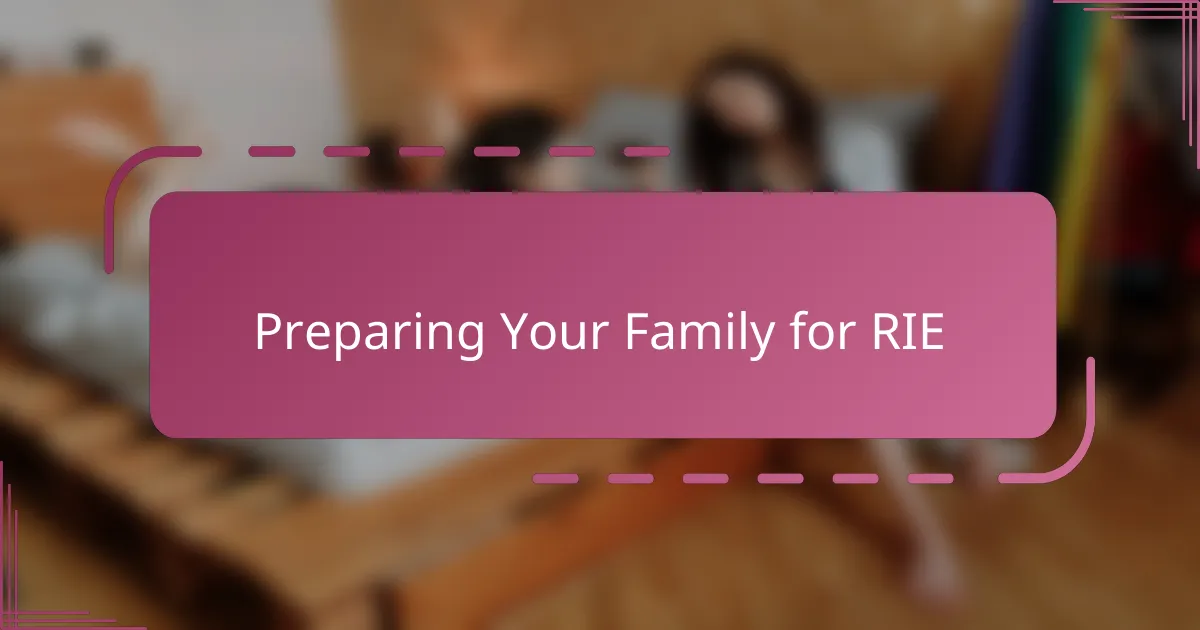
Preparing Your Family for RIE
Getting your family on board with RIE isn’t always straightforward—I remember when I first introduced the idea, my partner was a bit skeptical about slowing down and giving our child more space. It took honest conversations and sharing what I’d learned about respect and observation to help them see the value. Have you ever had to gently shift your family’s mindset before? It’s a gradual process, but so worth it.
Creating a physical environment that invites independence was another step I found essential. I cleared a corner of the living room for safe exploration and put out simple toys without overwhelming choices. This small change made a big difference—it sent a message to my child that I trusted them to engage on their own terms. Do you think your home feels like a place where your child can truly experiment and learn?
Communication with extended family and caregivers also matters a lot. I made sure to explain RIE principles and why we were doing things differently, which helped reduce confusion and mixed messages. It felt empowering to have everyone support this respectful approach; after all, consistency builds trust and security for the little one. Have you found that sharing your parenting philosophy can actually bring families closer?
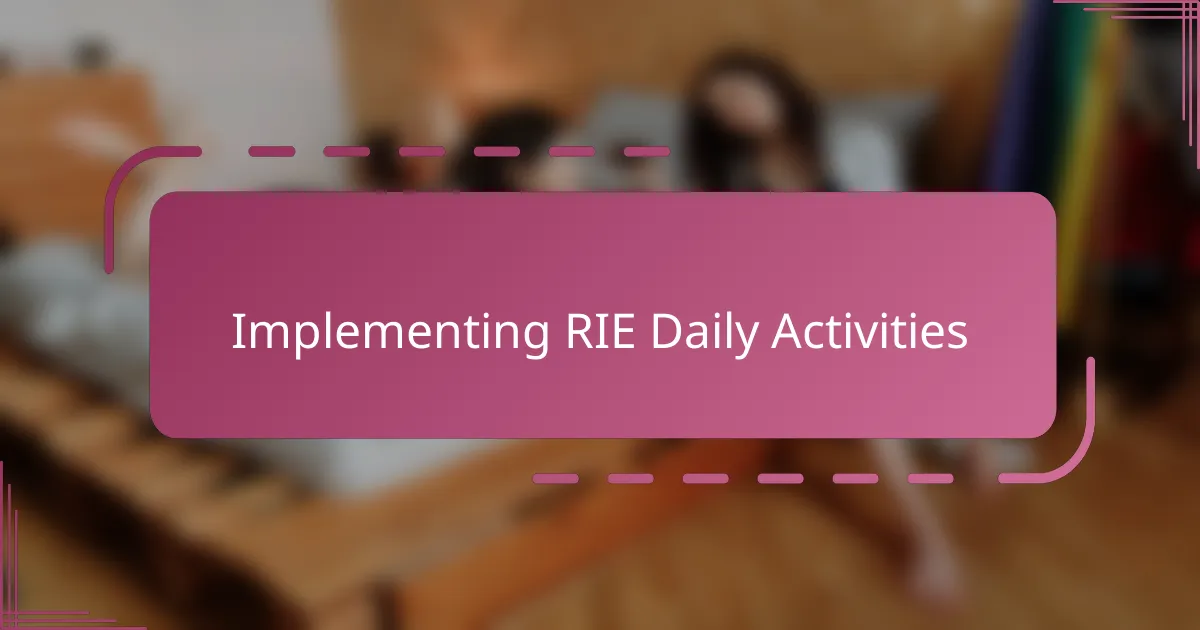
Implementing RIE Daily Activities
Implementing RIE daily activities meant slowing down and really tuning into my child’s natural rhythm. Instead of rushing to pick them up at the first sign of frustration, I gave them space to process their emotions and try again. This patience wasn’t always easy, but witnessing their growing confidence was incredibly rewarding—have you noticed how kids bloom when given a chance to navigate challenges on their own?
I also made a habit of narrating our daily routines with gentle, respectful language. Saying things like, “I’m putting your shoes on now,” rather than rushing, helped my child feel involved and understood. That simple shift transformed ordinary moments into meaningful interactions; it felt like we were truly communicating as equals rather than me just managing tasks.
Creating consistent daily rituals around RIE was key in making respect a natural part of our family life. Whether it was eating together without distractions or allowing quiet playtime, these small practices built a calm environment where my child felt safe to explore. Have you ever found that consistency can be a surprisingly powerful way to foster trust and independence? I certainly have.
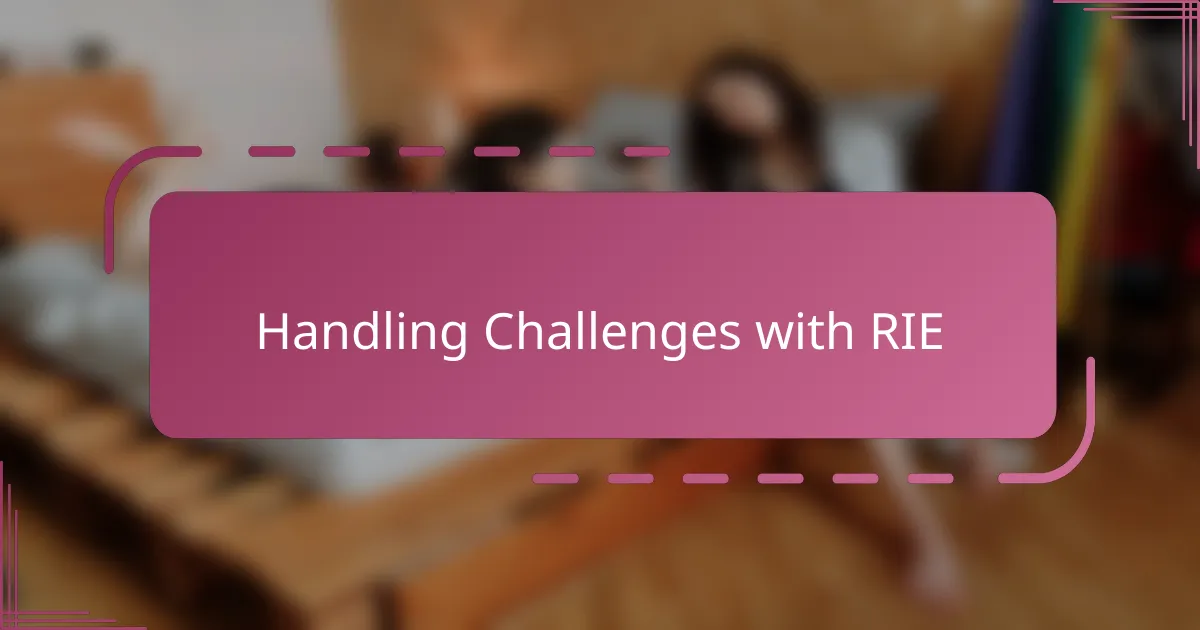
Handling Challenges with RIE
Navigating challenges with RIE wasn’t always smooth sailing for me. I remember a moment when my toddler was struggling with a new skill, and my instinct was to step in quickly. Instead, I reminded myself to observe and allow space, which felt uncomfortable at first—but seeing their proud smile afterward made me realize how powerful that pause really is. Have you ever felt torn between helping and holding back?
There were times when setting limits respectfully tested my patience. Saying “no” without harshness took practice, but over time, it created a sense of safety rather than rebellion. I found that explaining boundaries calmly, as if having a gentle conversation, made all the difference in those tough moments.
Sometimes, family and friends questioned my approach, especially when I let my child handle frustrations independently. It wasn’t easy standing firm in the RIE way, but witnessing my child develop resilience and trust gave me the confidence to keep going. Have you experienced pushing through doubt to find a parenting style that truly feels right?
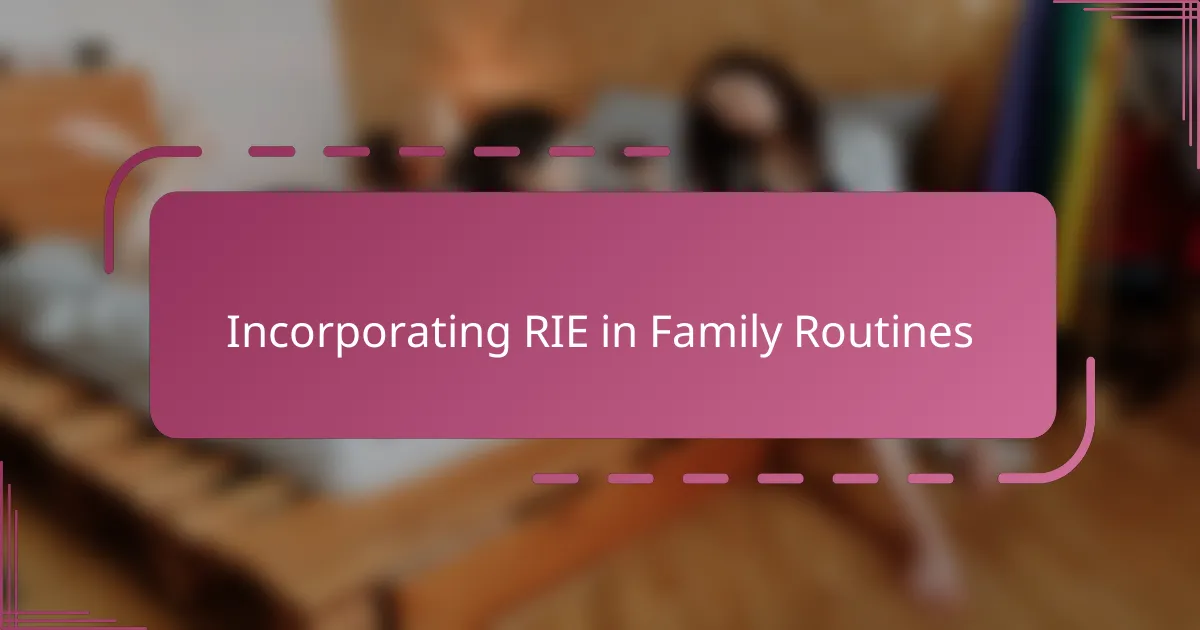
Incorporating RIE in Family Routines
Incorporating RIE into our family routines meant rethinking everyday moments as opportunities for respect and connection. I started by giving my child more uninterrupted time to play and explore, resisting the urge to constantly step in. It was incredible to watch their problem-solving skills surface naturally—doesn’t it feel rewarding when kids surprise you by figuring things out on their own?
Meal times transformed too, becoming relaxed occasions where I talked calmly about what we were doing rather than rushing through. This simple shift made my child feel seen and included, turning a routine activity into a chance for meaningful interaction. Have you noticed how slowing down even a little can change the whole family atmosphere?
Consistency played a huge role in making RIE part of our daily life. Establishing gentle rituals like quiet play before naps or mindful transitions helped create a predictable and safe space. I realized that these small, respectful routines didn’t just nurture my child’s independence—they built a foundation of trust that I deeply value. What routines in your home could be reshaped with a sprinkle of respect?
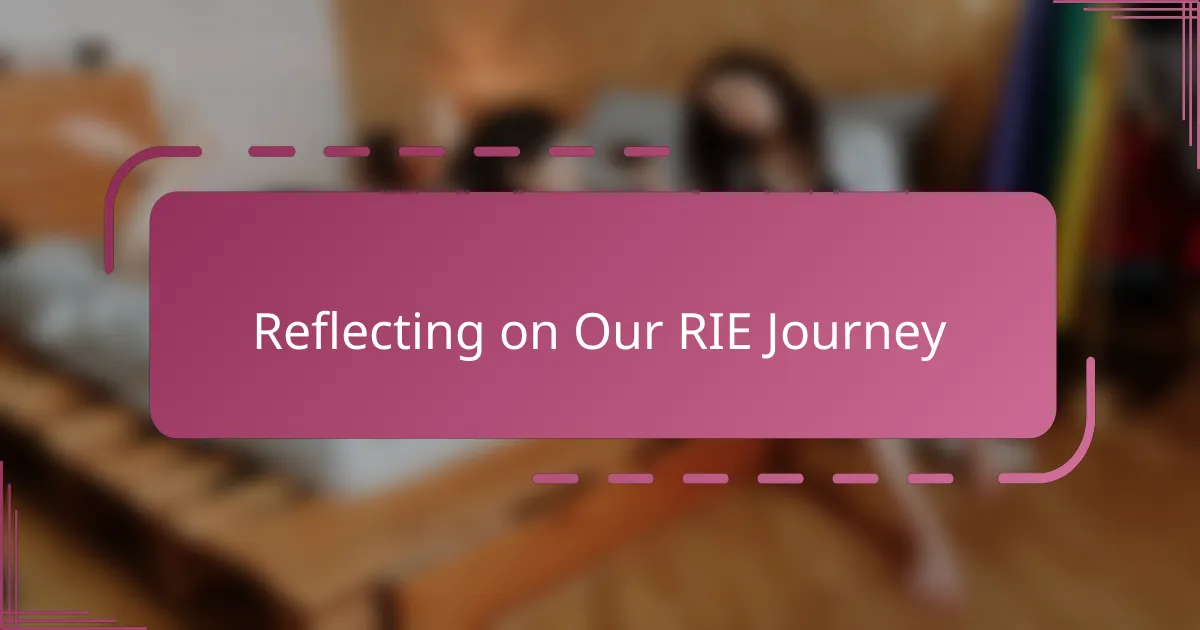
Reflecting on Our RIE Journey
Looking back on our RIE journey, I’m struck by how much it shifted not only my parenting but my perspective on childhood itself. There were moments of doubt and frustration, sure, but each challenge became a learning opportunity for both me and my child. Have you ever noticed that the toughest times often lead to the most profound growth?
One thing that stands out is how patience transformed into something surprisingly joyful. Watching my child explore with genuine curiosity, uninterrupted and unhurried, felt like witnessing magic in slow motion. It made me realize how rarely I’d paused before to simply be present—has that ever happened to you?
Reflecting now, I see that adopting RIE principles wasn’t just about changing routines; it reshaped our relationship in ways I didn’t anticipate. The mutual respect and trust we built created a calm, connected environment that feels like a true partnership. Doesn’t that sound like the kind of parenting we all aspire to?

